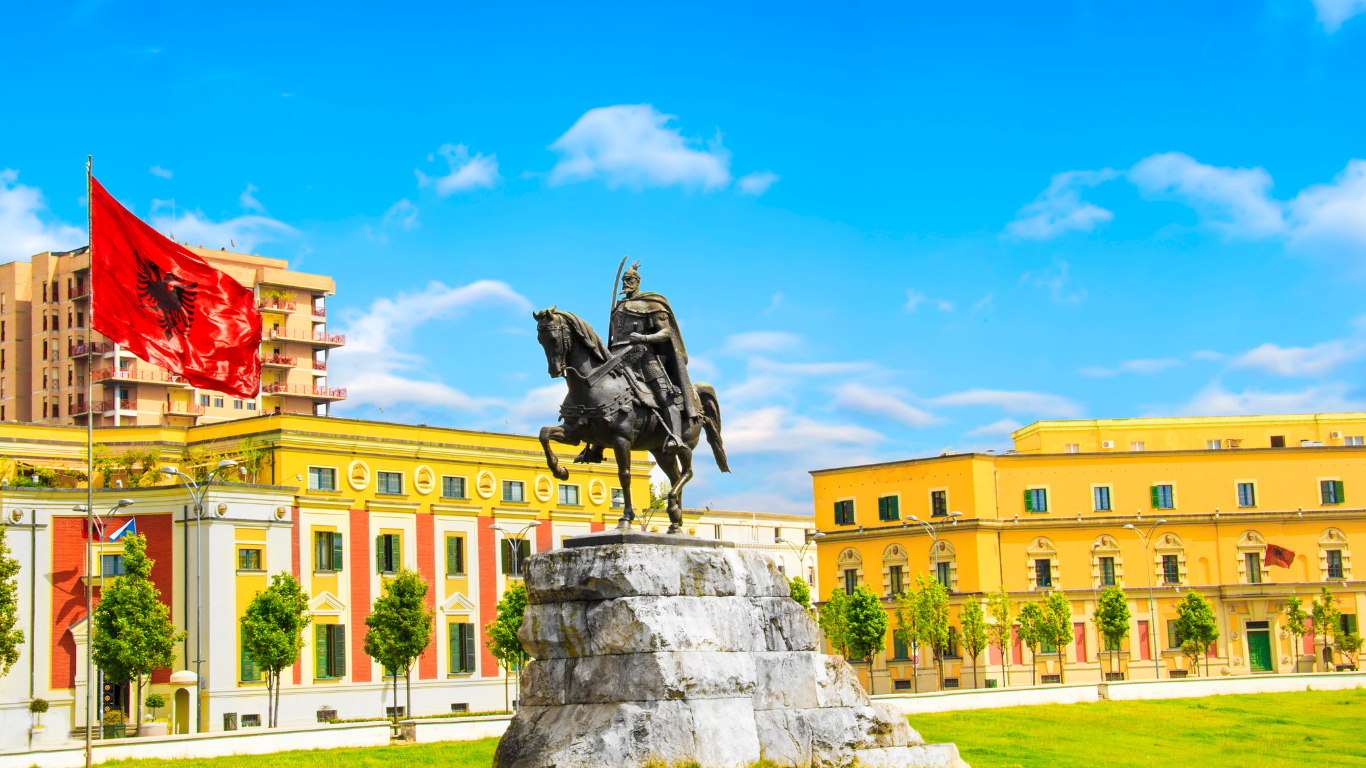
Tour Packages
ALBANIA
Explore the whole Albania in 7 days
Circuit
7 days – 6 nights
North & South Albania
Circuit
5 days – 4 nights
Pearls of South Albania – Riviera
Circuit
5 days – 4 nights
Shkodër: Accursed Mountains 5-Day Hike with Accommodation
Circuit
5 days – 4 nights
Albanian Riviera – Beach Tour
Circuit
5 days – 4 nights
The Balkan Tour – 5 Countries in 6 days from Tirana
Circuit
6 days – 5 nights
Explore 150+ Tour Packages
Albania like never before
Tour Packages
Featured Destinations
ALBANIA
Things to do
ALBANIA
Day Trips
ALBANIA
Free Walking Tours
The best free walking tour guides in the world are here. A “free tour” is a guided city tour where history, culture, and lifestyle are explained. Currently, it is already the first choice for travelers in any city they visit. Get a free walking tour in ALBANIA with local guides:
Free Tours in AlbaniaMulti-day Trips
ALBANIA
eSIM for Albania
Buy an international eSIM and never pay for roaming again. Connect to Unlimited Internet at 3G/4G/LTE/5G speed in minutes and stay in touch with your family and friends. Enjoy a 5% discount on any plan and destination: Promo Code: ITACATOURS5
Get Unlimited InternetDurrës
ALBANIA
Durrës is a coastal treasure where history, culture, and seaside relaxation blend effortlessly. As one of Albania’s oldest cities, it boasts a fascinating mix of ancient ruins, lively promenades, and Adriatic charm. Wander through the Roman Amphitheater, explore the Venetian Tower, or soak in the sun on the long sandy beaches. Whether you’re indulging in fresh seafood, uncovering centuries-old secrets, or simply embracing the Mediterranean atmosphere, Durrës offers a perfect blend of heritage and leisure.
Things to do
DURRËS
Free Walking Tours
The best free walking tour guides in the world are here. A “free tour” is a guided city tour where history, culture, and lifestyle are explained. Currently, it is already the first choice for travelers in any city they visit. Get a free walking tour in DURRES with local guides:
Free Tours in DurrësDay Trips
DURRËS
Shkodër
ALBANIA
Shkodër is a city where history, culture, and natural beauty come together in northern Albania. Nestled near Lake Shkoder, it boasts a fascinating mix of Ottoman architecture, vibrant street life, and breathtaking landscapes. Wander through the pedestrian street Rruga Kole Idromeno, explore the Rozafa Castle for stunning panoramic views, or visit the Marubi National Museum of Photography, showcasing Albania’s rich visual history. Whether you’re indulging in local cuisine, discovering hidden courtyards, or venturing into the nearby Albanian Alps, Shkoder offers an unforgettable blend of heritage and adventure.
Things to do
SHKODËR
Day Trips
SHKODËR
Tirana
ALBANIA
Tirana is a city where history, culture, and modern energy converge in a fascinating blend. As Albania’s capital, it has transformed from its communist past into a vibrant hub of colorful architecture, lively cafés, and dynamic street life. Wander through Skanderbeg Square, explore the intriguing Bunk’Art museums, or stroll through the trendy Blloku district, once restricted to government elites but now a hotspot for nightlife and creativity. Whether you’re indulging in authentic Albanian cuisine, uncovering hidden courtyards, or soaking in the city’s evolving charm, Tirana offers a unique and unforgettable experience.
Things to do
TIRANA
Free Walking Tours
The best free walking tour guides in the world are here. A “free tour” is a guided city tour where history, culture, and lifestyle are explained. Currently, it is already the first choice for travelers in any city they visit. Get a free walking tour in TIRANA with local guides:
Free Tours in TiranaDay Trips
TIRANA
Vlorë
ALBANIA
Vlorë is a coastal city where history, culture, and stunning beaches converge. As the gateway to the Albanian Riviera, it boasts crystal-clear waters, lively promenades, and a rich historical heritage. Explore the Independence Monument, marking Albania’s declaration of independence, wander through the Old Town, or relax on the pristine shores of Plazhi i Ri. Whether you’re indulging in fresh seafood, discovering hidden coves, or soaking in the Mediterranean sun, Vlorë offers a perfect blend of heritage and seaside beauty.

